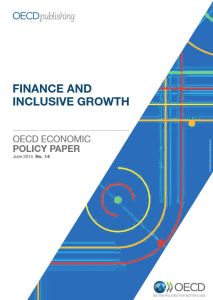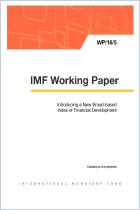Únase a getAbstract para acceder al resumen.

Únase a getAbstract para acceder al resumen.
Boris Cournède, Oliver Denk and Peter Hoeller
Finance and Inclusive Growth
OECD, 2015
¿De qué se trata?
The massive growth of credit and equity markets in OECD countries has opened up an unintended can of worms.
Recommendation
The massive upsurge in private sector credit and stock market capitalization in OECD countries in recent decades has been both a blessing and a bane. While the increased availability of debt and equity finance can help promote economic output, too much of a good thing can quickly become bad. OECD economists Boris Cournède, Oliver Denk and Peter Hoeller investigate this tendency and offer essential insights into the complex interplay of finance and the real economy, which getAbstract suggests to policy makers, financial professionals and regulators.
Summary
About the Authors
Boris Cournède, Oliver Denk and Peter Hoeller are OECD economists.





















Comment on this summary